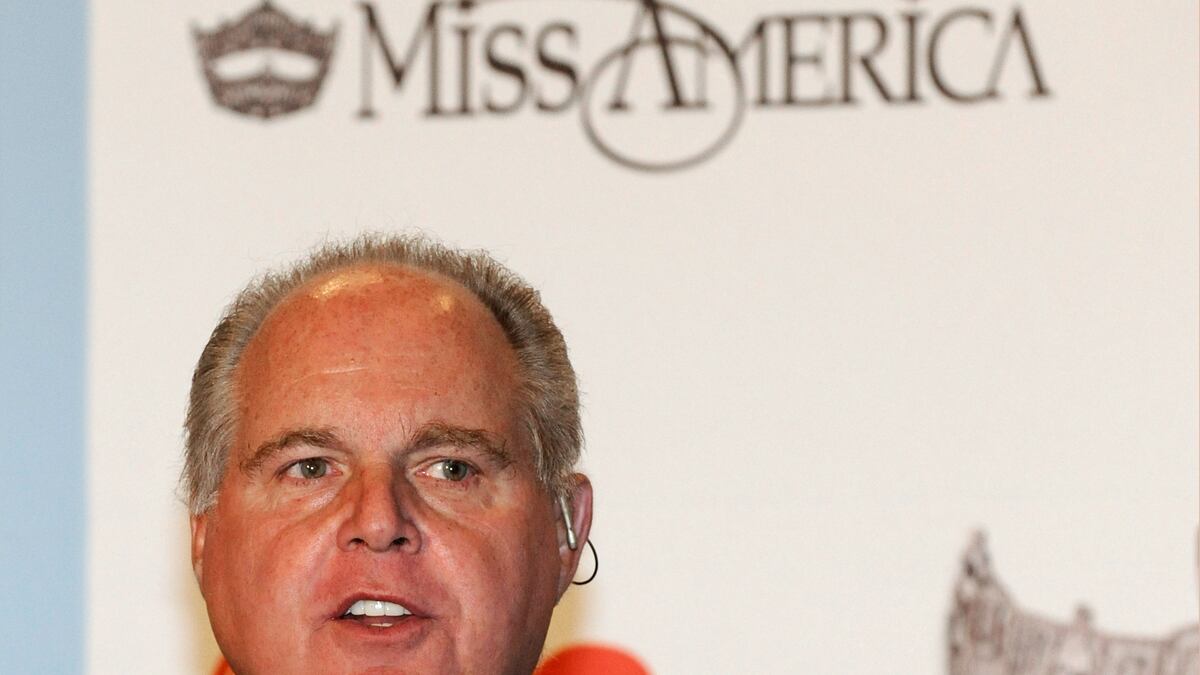Archive
Ethan Miller / Getty Images
Despite Sandra Fluke Apology, Rush Limbaugh Advertisers Sign Off
See Ya
Rush’s slurs against the 30-year old Pennsylvanian woman reinforce a problem for both right-wing talk radio and the Republican Party. Plus, Howard Kurtz on the GOP's Rush problem and Allison Yarrow on the fallout at Georgetown.

Trending Now





